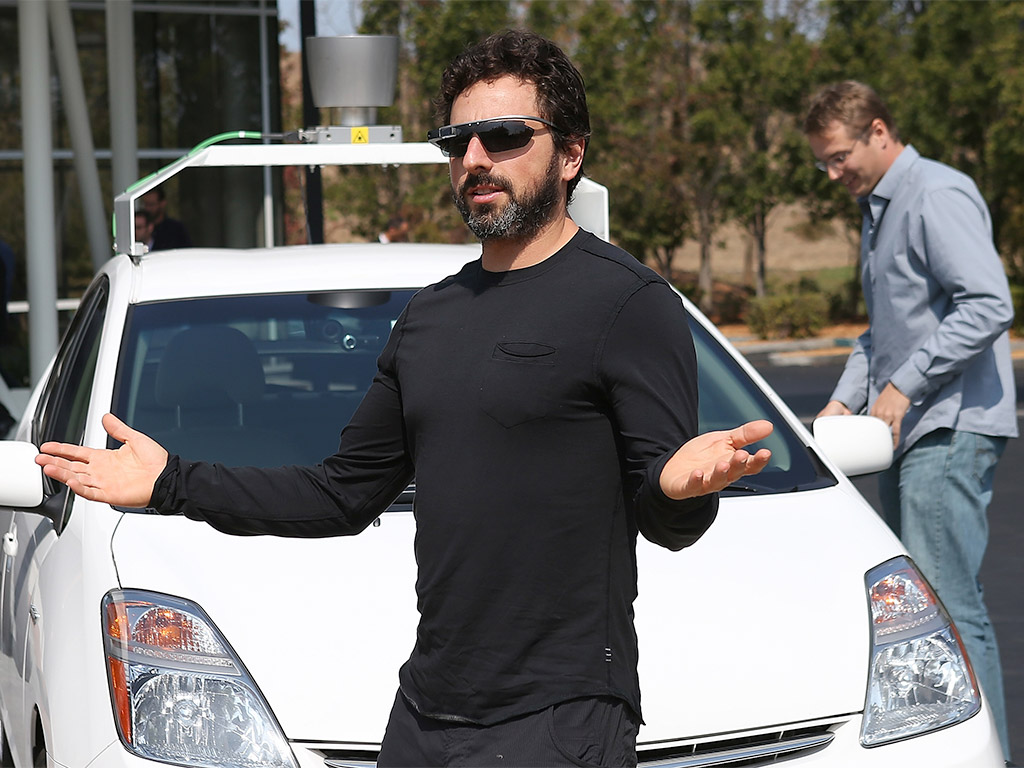Google to build self-driving cars
The tech behemoth has announced that it will build its own self-driving cars, as opposed to equipping vehicles from another automaker

Google co-Founder Sergey Brin stands in front of a self-driving car at the company's headquarters. Google has announced that it will build its own self-driving cars
The California tech giant Google has unveiled plans to build its own self-driving cars, with the expectation being that the completed vehicles will be road-worthy within the year. Since development on the project began in 2009, the firm’s automobiles have logged upwards of 700,000 miles as part of an effort to rid the roads of human error.
[M]any have been quick to criticise the design, fearing that it could increase congestion on the roads
“We’re really excited about this vehicle – it’s something that will allow us to really push the capabilities of self driving technology, and understand the limitations,” said Chris Urmson, Director of the company’s Self-Driving Project at a Southern California tech conference.
The company has been testing cars equipped with Google-built sensors and navigation technology for some time now, although the news that it intends to build the vehicles itself marks the beginning of a new chapter for the firm.
However, with only two seats and a top speed of 25mph, many have been quick to criticise the design, fearing that it could increase congestion on the roads and extend already lengthy commutes for those in the city. Combining laser and radar sensors, alongside extensive camera data, the vehicle is without a steering wheel or pedals to speak of, and comes equipped only with a stop-go button.
What’s more, some remain unconvinced of the technology’s benefits prior to mainstream adoption. “Until the majority if cars have this capability there will be incremental safety gains from self-driving cars and also increased mobility options for those that weren’t able to benefit from passenger vehicles,” said Thilo Koslowski, Vice President and Distinguished Analyst at Gartner.
Google intends to introduce a steady stream of some 200 vehicles to the city of Detroit, using the site as a testing ground for the self-driving technology.
Association for Safe International Road Travel statistics show that in the US alone, over 37,000 people die every year from road crashes and another 2.35 million are injured or disabled. Supporters of the technology believe that computer-driven automobiles could go some way to curb road traffic accidents, with some going so far as to say the technology could potentially revolutionise road transport.
“Self-driving cars, if they become viable (and it’s looking like they will), are going to change transportation forever,” says Michael Battista, Senior Consulting Analyst for InfoTech. “There will be indirect effects on pretty much every aspect of human life. Transportation jobs will be lost and gained, everybody will have more productive hours in a day when commuting downtime is eliminated, and the possibility of shared autonomous cars could eliminate the need for most parking lots.”
However, there still exists a number of issues to iron out before self-driving cars enter onto the market in any meaningful way, not least of which being “consumer trust and loss of control,” according to Koslowski.
“Laws and regulations move less quickly, but as we’ve seen in other disruptive transportation technologies, like Uber, sometimes the technology is able to plow ahead anyway,” says Battista. “Lawmakers and luddites will certainly resist self-driving cars, but if Google is pushy enough to get them out there and prove that they work—and save a whole lot of lives—then resisting our robotic chauffeur friends will be nearly impossible.”













